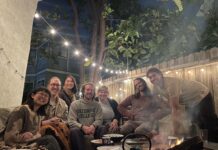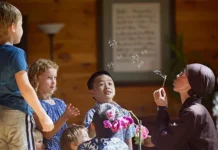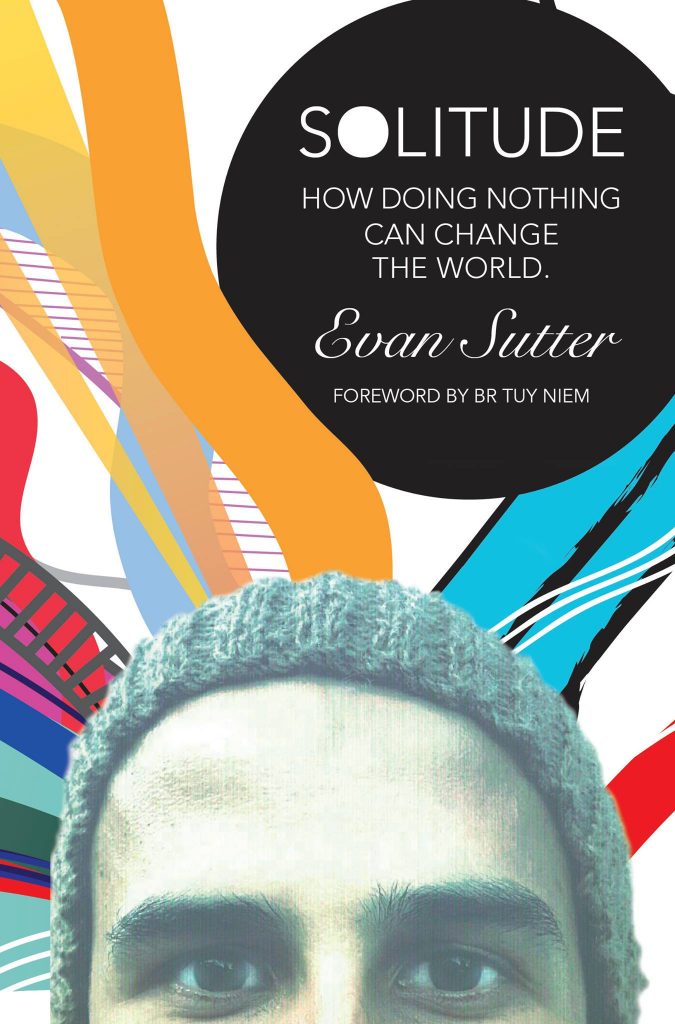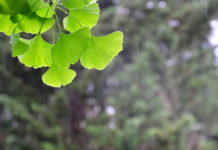“Our entire life has been training. The question is: training in what? This question means: training in which direction? If we train ourselves to reach for a snack or pick up the phone to text-message whenever we feel frightened or bored, this is definitely training. The next time we feel uncomfortable we will also tend to reach for some comfort outside ourselves, eventually establishing a deeply ingrained habit, another brick in the wall of our mental prison. Are we training in how to distract ourselves from inner discomfort or anxiety? Are we training in numbing ourselves in the face of fear, or training in waking up? Training in opening the heart, or training in shutting down?” Gaylon Ferguson, Fruitless Labor.
We do not know how to just do nothing; this is a bigger problem than we care to think about. In the west we are taught to seek our answers in external things and, as a result, we never need to take the time to look within. We have a poor connection with ourselves because our whole lives we have been looking outward; we are a society bent on distraction, and the modern world is only amplifying this.
We never do ‘nothing’ because nothing always involves doing something, whether it is watching television or playing on our phones or computers, we never truly take the time to sit and just feel how we feel. We race to fill our boredom or loneliness with activity and as a result manage to grow up and grow old without ever spending time with ourselves doing absolutely nothing. We can’t just sit on the hill watching the sky or sit on a park bench listening to the birds, for most people this would mean boredom and loneliness. When we can sit and just be, with no motive and agenda, we can start to enjoy doing absolutely nothing and when we can enjoy doing nothing by ourselves it is the very beginning on the road to inner peace and happiness.
It’s easy to put the links between the increases in mental illness, depression, ADHD, and the like, with the speed of the modern world. People never get the chance to do nothing, or when they do, they lack the control to prevent their mind from racing off in a thousand different directions. So much so that their doing nothing becomes a thousand different things and the thousand different things becomes stress, anxiety, worry and fear. Left untreated these simple everyday things become well entrenched in our psyches and start to dominate our lives. We have a chronic addiction with doing and we love to use our busyness as a stamp of our hard work and hectic lives and we get stuck in this busy trap of always doing.
When the time comes to take our holidays or vacation, we are so used to always running that we find it difficult to actually enjoy the quiet times and instead feel compelled to move. If we can enjoy the peace it is usually just on an external level, and the golden sand and tranquil ocean are just facades to the anarchy our wandering mind delivers internally.
This inability to just do nothing is a direct result of our habit of externalisation. As children we are never taught in schools, or in social settings, to look within ourselves for answers. Whether it is that our answers are found in some sort of religion, or another person, or in something else, we start to make this common practice. We are indecisive in life looking to friends, family, counsellors, teachers, and even strangers for advice. We are never taught or, better yet, shown how to look after our number one relationship in life, which is the relationship with one’s self.
How is this related to our inability to do nothing and our inability to truly enjoy our own company doing nothing? It is one and the same, we never spend anytime nurturing this relationship and therefore it is weak or non-existent. This non-existent relationship with one’s self when the times get tough, and stress, anxiety and worries are present leads to chronic sickness. We simply don’t have the internal capabilities to deal with such things on our own, so instead of relying on what should be a well – established, deep and strong functioning inner- relationship, we turn to external solutions, most notably medication, recreational drugs and alcohol.
We all need a technological detox; we need to throw away our phones and computers instead of using them as our pseudo-defence system for anything that comes our way. We need to be bored and not have anything to use to shield the boredom away from us. We need to be lonely and see what it is we really feel when we are. If we continue to distract ourselves so we never have to face the realities in front of us, when the time comes and you are faced with something bigger than what your phone, food, or friends can fix, you will be in big trouble…..
This is an excerpt from one of the opening chapters of Evan’s book Solitude: How Doing Nothing Can Change the World.
How will three months living in a hut in the forests of a Buddhist Monastery affect him? How will it feel to see his brother, who is now a monk, for the first time in two years?
See how one email from his brother leads Sutter, a lost young man, to fly across the world to Plum Village in Southern France. Life at the Monastery is the opposite of the life Sutter had been leading, a life laden with alcohol, drugs, women, technology and constant distractions. See how this decision alters his life forever.
Sutter uses his solitude in Plum Village to analyse his history with sex and desire, alcohol and drugs, happiness, ego, envy and success, all the way providing simple to read and entertaining insights. Sutter blends western world issues with mindfulness-based practices to highlight areas that have caused suffering on personal and societal levels.
Solitude: How Doing Nothing Can Change the World will be released on September 18, 2015 in Paperback and digital formats on all online stores. Solitude features a foreword by his brother and Plum Village Monastic Br. Tuy Niem and chapters on happiness, letting go, impermanence, consumption, community, mindfulness, envy, ego, competition, reverence, loving speech and deep listening, society, sex, desire and craving and love.
Evan has previously written about sex, desire, and craving and his reflection on his 3-month stay in Plum Village for this website.


















